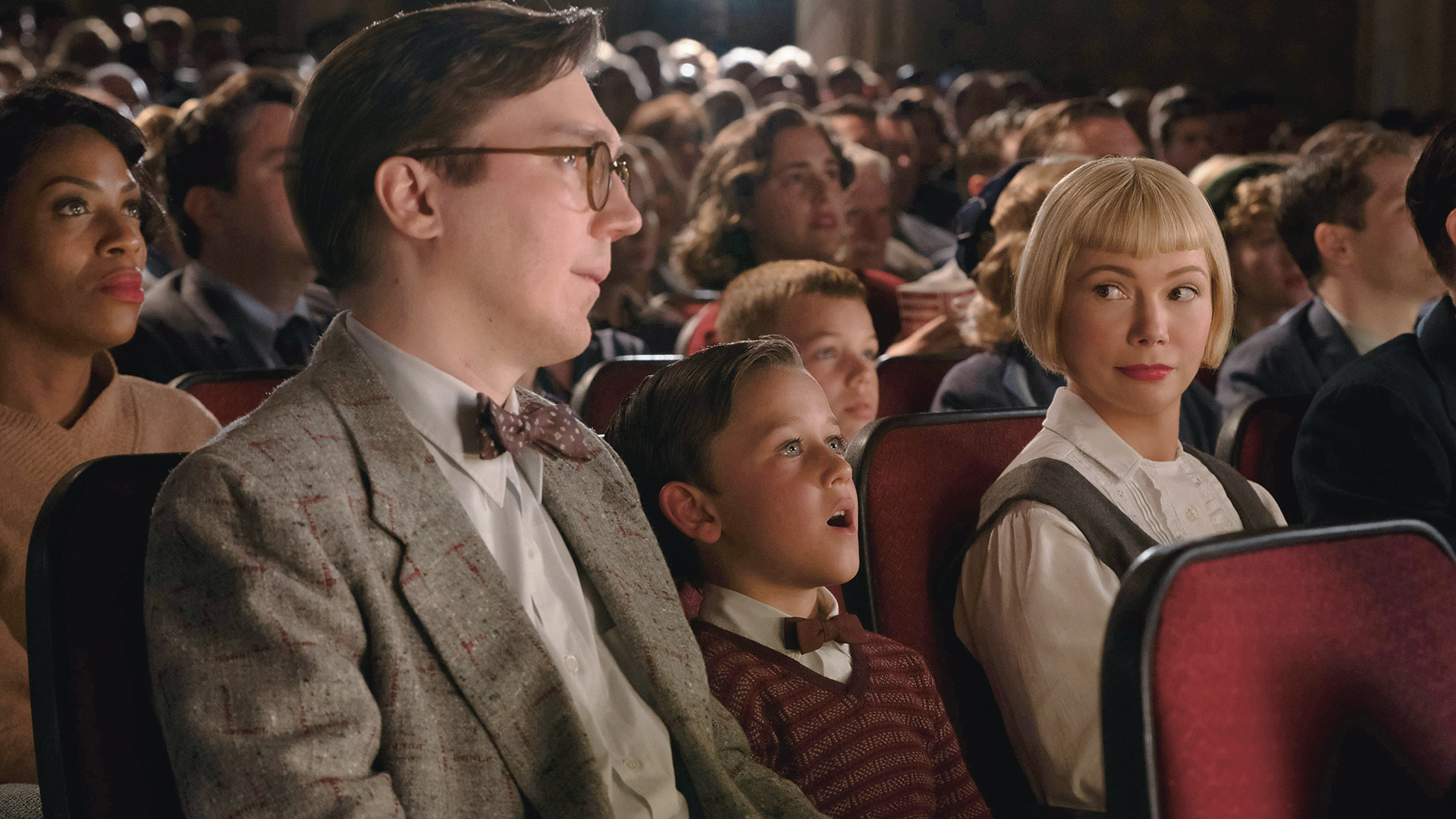
The Fabelmans review: Watching them be
- Post By Jan
- April 22, 2023
Words by Jan Tracz
Steven Spielberg, the world’s greatest filmmaker, will do just about anything to make us feel entertained in his self-examining biopic.
In The Fabelmans, America’s three-time Oscar winner film, Steven Spielberg, confronts his own, once lost, childhood. It is an indelible, mirth-evoking and massive-size parable (nearly three hours long) about becoming an adult during the family’s breakdown when his parents decide to divorce. Emotionally unable to cope with this situation, young Spielberg escaped towards cinephilia. Obviously, his previous films told the audience that he is a film-lover; even the previous remake of West Side Story (2021) was not something relatively unusual when we manage to go through his whole filmography. Choosing to do that musical (again) was not a matter of coincidence: when Spielberg was young, he loved Robert Wise’s version and he just had to have his own. It was an auteur’s incessant need, a desire to possess, but also to conquer the cinema.
But I digress: a connection between Baldwin’s quote and the American director must be, finally, found. In his film, Spielberg discerns the cinema’s past through the lenses of his unique childhood. He reminds himself how delightful it was to be a young boy and just spend some free time in the cinema’s auditorium; in a screening room where the beam benignly touches your hair and evokes life-changing, unseen sequences. As a filmmaker, Spielberg recalls that being (here: sitting) in front of the screen was the most formative experience of his life. But cinema is one element, while the family is the other. We watch the Fabelmans be a family consisting of different contrasts like love and hate, happiness and anxiety or hugs and miscommunications. In his film, Spielberg pictures these disparities through the eyes of the Fabelmans’ younger kid, Sammy (Gabriel LaBelle). The director chose this perspective because he is this actual boy; a narrative decision like that is nothing insightful, but, like every verified cliché, it works.
Spielberg’s caress towards his parents and sisters is somehow ennobling for them. He is not judging anyone’s choices and emotions, as his kind-heartedness reminds us he has always been a film humanist in the first place. Thanks to Spielberg, the truth-inducing effect is absolutely alluring. Although it's a nostalgia-ridden crowdpleaser and it endows us with a run-of-the-mill concept, the film still delivers an engulfing storyline about the restless family. Besides, it relies on the actors’ subliminal performances. Judd Hirsch anchors the film’s quirkiest theme (a sudden visit of a long-time-no-see Russian granduncle, Boris), while Michelle Williams is just "herself," which is enough to deliver a strong performance. As a troubled mother, Mitzi (a recurrent theme in the director's films), she hides her anxieties and fears behind the mask of a “cool mama”: her crying is as ephemeral as her blithe smile. Unfortunately, Mitzi is anything but happy in her based-on-monotony marriage. And we cannot forget about Paul Dano, a father figure and a scientist from the Eisenhower era, who, completely lost in his job, overlooks his family’s needs as the man of the house.

In this film, Spielberg-cinephile meets Spielberg-craftsman and we watch them go for a drink. For example, there are some riveting references to film history (like a brilliant, final sequence with David Lynch as John Ford) and the whole nostalgic aura towards the old cinema is emphasized by Janusz Kamiński’s cinematography (who imbues us with his undeniable mastery, an eloquent camera movement which makes Spielberg’s films visually more tempting). In any case, Spielberg proves he still feels the cinema better than most young directors. Although he slowly saunters through his childhood, The Fabelmans is as entertaining as overzealous Babylon (2022), directed by another visionary, Damien Chazelle.
What a man this Spielberg is. At his age, he creates an engaging Hollywood tale about one interesting family, the scope of their ambitions and what comes next after admitting some shady truths. This film is the urgency to make an audiovisual, childhood postcard before it’s too late and everything will be forgotten. It’s a work of a person whose internal ardour will never ebb. And, it’s a love letter filling its audience with an infectious sense of joy and hopefulness.


